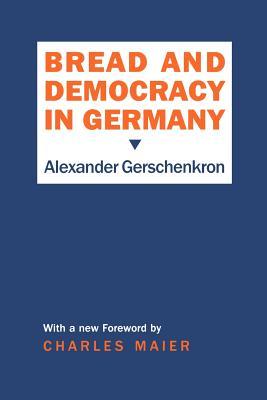A classic in its field, Bread and Democracy in Germany has been widely praised since its publication in 1943 for its account of German political and economic development. In his preface, Alexander Gerschenkron states: "The primary purpose of this study is to show, first, how, before 1914, the machinery of Junker protectionism is agriculture, coupled with the Junker philosophy... delayed the development of democratic institutions in Germany; and second, how the Junkers contrived to escape almost unscathed from the German revolution of 1918 and how this fact contributed to the constitutional weakness and subsequent disintegration of the Weimar Republic."
Emphasizing the importance of the problem of German agriculture in its relation to democratic reconstruction, Gerschenkron asserts that "the political attitude of farmers in several European countries had a decisive influence on the fate of European democracy. Nowhere is this more true than in Germany. The German farmers bear their full share of responsibility for the advent of fascism in that country."
